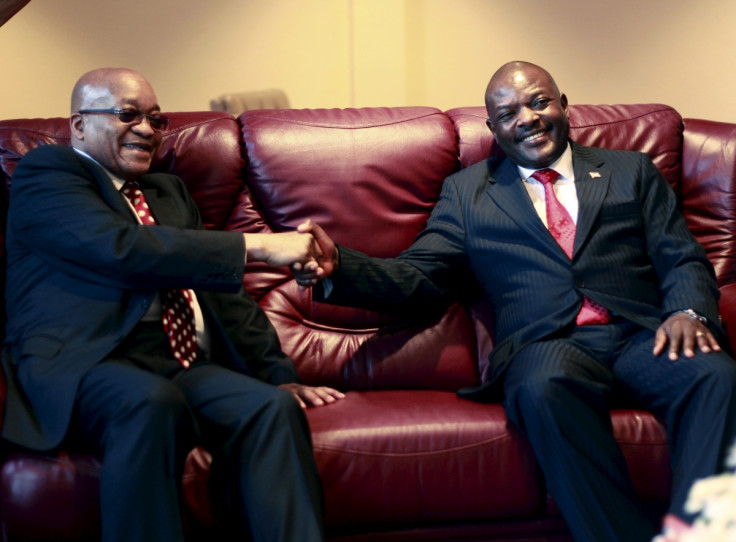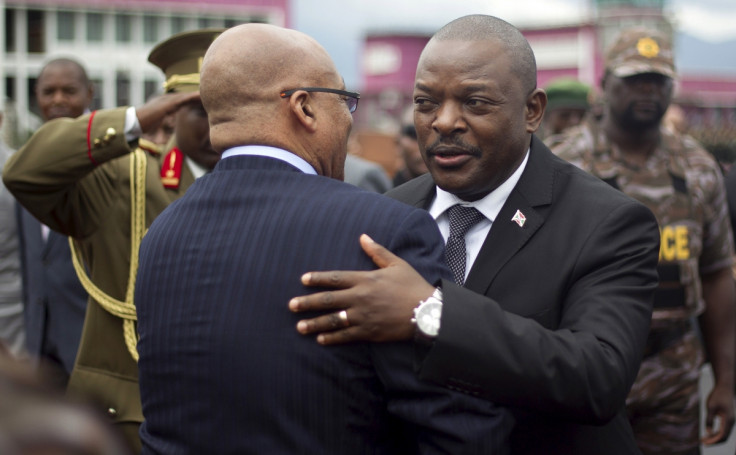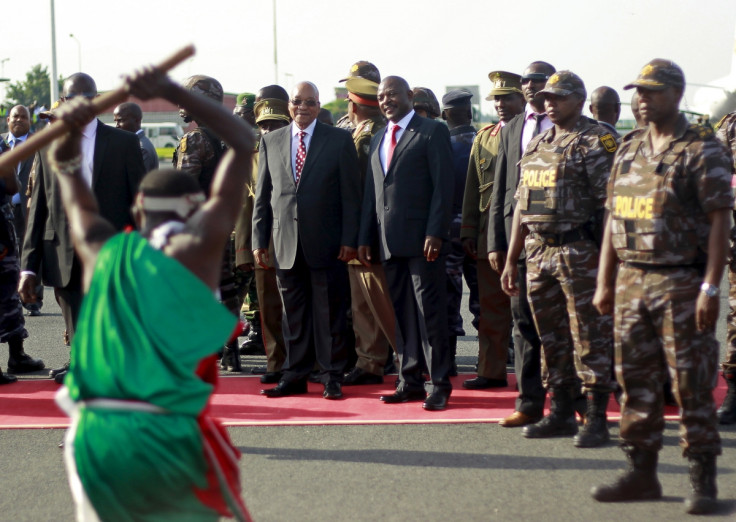Burundi: African Union's actions 'limited by Jacob Zuma's interests in the region' claims opposition

The Burundian opposition has questioned South Africa's president Jacob Zuma's proposed solution to try to resolve the Burundi crisis that has left up to 900 dead, claiming the head of state's alleged 'personal interests' had got in the way of solutions for a real resolution.
Zuma, who was a facilitator of the 2000 Arusha peace agreement that ended Burundi's 12-year civil war that left 300,000 dead, led an African Union (AU) mission aimed at helping facilitate talks between Burundi's president Pierre Nkurunziza and opposition parties in strife-town Burundi on 25 and 26 February.
The four African heads of state and a prime minister were expected to discuss the deployment of a 5,000-strong Maprobu peacekeeping force, and set out conditions for an 'inclusive dialogue' between Nkurunziza's government and opposition groups, but the high-level delegation dealt the final blow to Maprobu project. Instead, the delegation settled for the deployment of 100 observers of human rights, as well as 100 "unarmed" military experts to monitor the situation.
African Union's 'actions are limited'
Pancrace Cimpaye, spokesperson of the coalition Council for the Observance of the Constitution (CNARED), an alliance-in-exile of several opposition movements, described the AU delegation's decision as dangerous and claimed Zuma's decision may have been influenced by his own interests in the region.
"The delegation was not unanimous on all the questions," Cimpaye told IBTimes UK over the phone.
"Zuma was 'almost acting as an ally to Nkurunziza' who failed to convince the other heads of state. We saw a rift between the Francophone and Anglophone parties, which felt like it was indeed a friends' club. We also felt that Zuma was more interested in markets he shares with Nkurunziza. For him it was more directed towards business that needed to be secured rather than talks about the human misery of the Burundian people."
The spokesman claimed the deployment of human rights observers would have "no impact".
"The observers will only be there to count the number of dead, that's all. The observers won't even have the right to circulate and will have to ask for authorisations to go here or there. They will know anything about it," Cimpaye said. "We don't like saying it, but it's a waste of time. The members of the AU delegation are not acting on the drama that is unfolding on the Burundian people."
For the opposition, the presence of military experts is "just proof that the delegation has failed to impose the African force, and that they are trying to find palliatives".

Cnared: Fears rebels will soon take path of war
Another subject on which the delegation was expected to debate was the resumption of the stalled dialogue process.
While it called on the East African Community mediator and Ugandan president Yoweri Museveni to convene the dialogue as soon as possible, it also added it will be held "with the major players" in the crisis - something Nkurunziza has so far rejected, claiming he would not sit down at the negotiations table with "terrorists".
CNARED, meanwhile, is urging for negotiations to be held as quickly as possible, and is pressing the European Union to maintain an economic pressure -through sanctions on Nkurunziza.
"The longer it takes for these negotiations to happen, the more the armed groups will grow and take their positions to resolve the question by force. That's what might happen and we at the CNARED are afraid that if they take the path of violence and war, if there is a civil war in Burundi, that's not a good omen for the Democratic Republic of Congo (DRC) and Rwanda. And unfortunately, we are slowly converging towards that."
Zuma: 'Pleased with contributions of all parties'
The delegation, which included Mauritania's President Mohamed Ould Abdel Aziz, President Macky Sall of Senegal, President Ali Bongo Ondimba of Gabon, and Ethiopian Prime Minister Hailemariam Desalegn, also met leaders of political parties, religious leaders and leaders of civil society of Burundi.
"We are pleased with the participation and contributions of all these sectors,"President Zuma said in a statement.
"The High Level delegation of the heads of state and government expressed its concerns about the levels of violence, loss of life, and the general state of political instability in the country. We are however pleased that all parties expressed strong commitment to resolving whatever political problems exist through inclusive and peaceful dialogue. We believe strongly that the solution to Burundi political problems can be attained only through inclusive and peaceful engagement."
The AU's visit came the United Nations Secretary General Ban Ki-moon last week announced that Nkurunziza had promised to release 2,000 prisoners and to do everything to enable an inclusive dialogue. Cnared welcomed the UN's efforts, but said it did not expect much from Ban Ki-moon's visit.

© Copyright IBTimes 2025. All rights reserved.






















